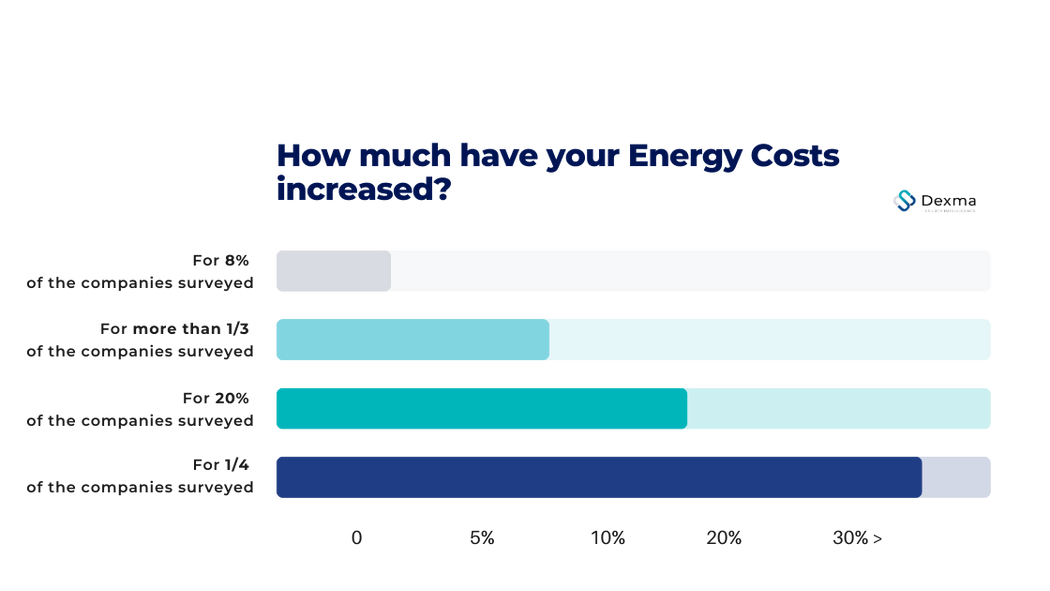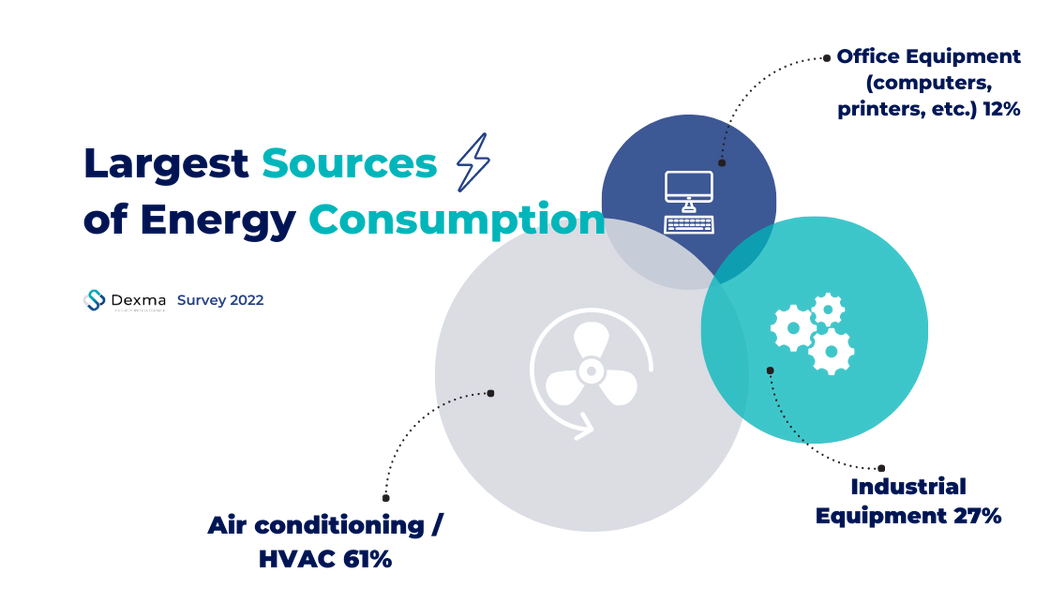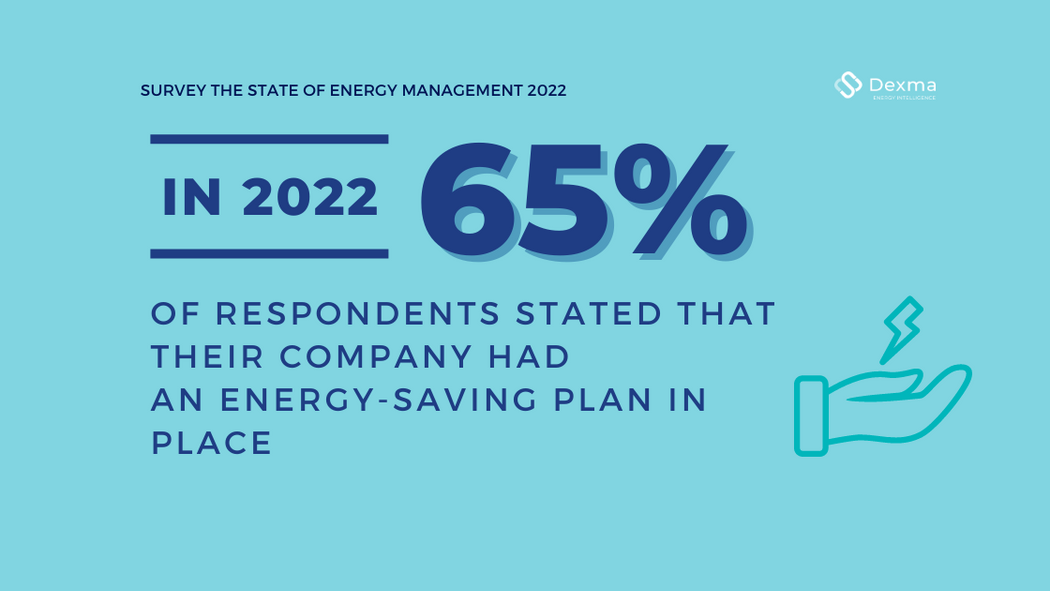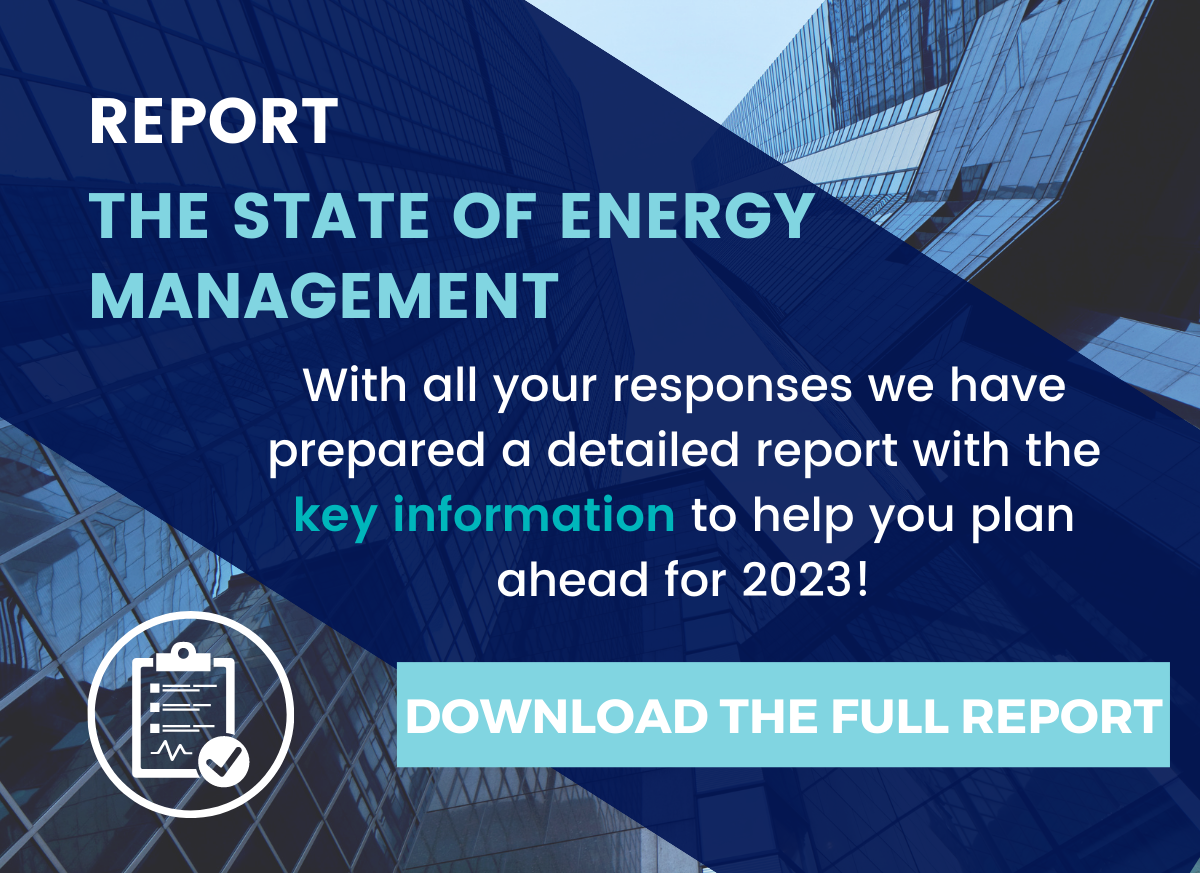Last December, we asked you to participate in our Energy Management survey and more than 250 of you responded favourably!
The survey was aimed at companies directly related to energy, such as ESCOs or energy suppliers, but also at companies from other sectors such as the tertiary sector or facility management. The results were analysed and synthesised to give an overview of the opinion of all these professionals on the challenges and trends in energy management.
To learn more about the challenges, priorities and trends in energy management in 2022, we invite you to download for free our energy report here.
Impact of Energy Costs
Unsurprisingly, rising energy costs were one of the key findings for businesses in 2022. Whether for financial, sustainability or regulatory reasons, the evidence is clear: organisations want to consume less and better.
Based on the responses to this survey, the energy costs of companies in all sectors exceeded one million euros in 2022. Unfortunately, according to the British Government, in 2023, gas and electricity market prices will continue to increase, despite the Energy Bills Discount Scheme (EBDS) measure.
This rise in costs, as we shall see below, has had a direct impact on the way companies manage energy and therefore on the way they approach their consumption. This is where ESCOs (Energy Service Companies) step in to provide the help businesses need to achieve their energy efficiency goals. Indeed, the survey report shows that 58% of ESCOs have seen their number of projects increase in 2022.
Main Sources of Energy Consumption
This year, we again asked what the biggest sources of energy consumption are within the company. The response was similar to previous years. As 61% of the responses show, air conditioning and heating systems remain the areas where organisations spend the most energy and money. This is followed by industrial equipment and office equipment (computers, monitors, printers, etc.).
Lighting, which in previous editions topped the list in terms of energy consumption, was no longer mentioned by any of our participants. Their energy saving measures, the switch to LED lighting, motion sensors to turn off lights, awareness raising of users on energy consumption… All these factors help to better control this energy aspect of buildings.
Energy Savings Plan
One of the direct consequences of the above findings is of course the awareness and sense of urgency on the part of companies to make energy savings and optimise energy efficiency within buildings.
Energy is no longer a topic that society can afford to ignore. High costs and environmental impact are driving companies to make energy savings and set emissions reduction targets. 65% of participants confirm that their organisations have energy-saving plans in place for 2022, and 27% plan to have one in place for 2023.
Of the 65% who already implemented an energy efficiency plan, more than half consider it to be effective and working well. This is an improvement on last year’s survey when only 29% considered their energy efficiency strategy to be effective and useful in 2021.
So, as you will have gathered, the time has come for many companies, regardless of their sector, to become more energy efficient. In this report, we take a look at the main trends in terms of energy challenges and objectives for companies. If you would like to see a summary of the responses from over 250 participants, you can download the PDF for free by clicking here.







